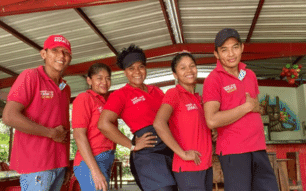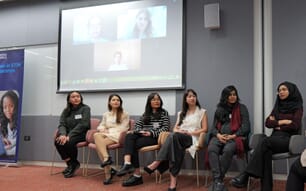What inspired you to first become involved in aquaculture?
My interest in fisheries and fish physiology. I wanted to be a shark biologist and both my BSc and MSc projects looked at feeding behaviour of sharks in relation to their growth using X-radiography. In designing and setting up experimental tanks for dogfish (Scyliorhinus canicula) I was using aquaculture techniques without really knowing it at the time. Aquaculture is about mirroring conditions in the wild for growing aquatic organisms, in order to ensure the animals you’re farming are happy: my curiosity in studying fish led to a deep interest in recreating artificial aquatic homes for them.
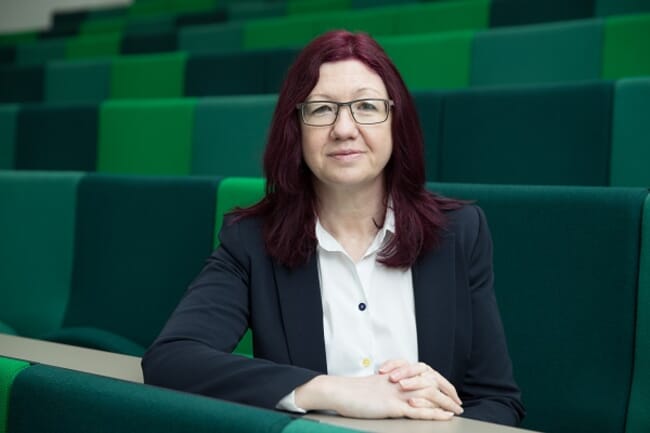
Briefly describe your aquaculture career
After finishing my MSc I was offered a PhD to work on sharks, but my supervisor advised me to accept a PhD on salmon physiology, as there were more jobs in this field and – because it was divided between the Scottish government’s marine laboratory and Aberdeen University – I’d have access to good facilities.
Towards the end of my PhD, in 1996, I was offered a lectureship, running the aquaculture programme, which was then run jointly between Aberdeen University and the Scottish Agricultural College (SAC). It was here that I began to develop an interest in the interaction of natural and social sciences – with the SAC I was part of a department that was focused on economics and sociology, while at the university it was a department that concentrated on zoology.
The lady I was working with on the course – Dr Lindsay Laird – was involved in the European Aquaculture Society (EAS), and she got me involved as the UK’s national representative. In time I joined the board and later became president. Most recently I was dean of postgraduate research at Newcastle.
What appealed about the directorship of the Institute of Aquaculture?
There were several things – one was that they had recently been awarded £17 million in research funding, which can be very scarce. Also, ever since I was a PhD student I’ve been aware that the institute has the reputation as being the place to do aquaculture. You’ve got the high-quality science being undertaken by very good people and you’ve got the research facilities to carry it out. The role also presents a chance to redefine the role of aquaculture, which I feel offers the best options for improving aquatic life in many parts of the world, as well as addressing food security.
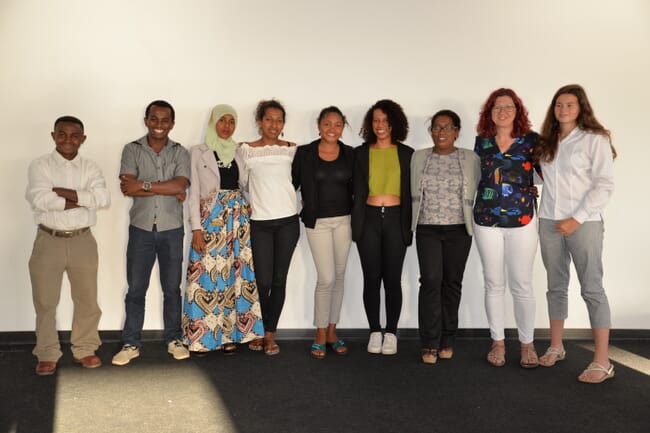
How do you juggle a dual career in government and academia?
I’m fortunate that the university values my role as the government’s chief scientific adviser to the Marine Management Organisation (MMO), and gives me time and the support to do this. Working closely with policy advisers helps me understand how to apply science, which is useful for the Stirling role too – and I see them both going hand in hand. In theory I work four days for the institute and one for the MMO – in practice it can be hard work juggling commitments, and I often end up working on weekends, but I’m better at prioritising time these days.
Do some people find it hard to reconcile your marine conservation background with your current aquaculture-related role?
I’ve not encountered this very often, although I’m aware of critical comments made by opponents of the industry, involving the destruction of mangroves, for example, or the use of wild fish species in aquafeeds. I think many of the criticisms are related to scientists’ tendencies to only look at one species or one habitat in isolation. In reality aquaculture can simulate interactions between species, between habitats and provide real data on how best to do it – there are too many habitats that are so badly damaged by events such as tsunamis and hurricanes and I think aquaculture can really help rebuild them. I see aquaculture as one of the most important conservation activities available, especially for planning how to cope with challenges such as climate change. But, in the face of much negative publicity, we need to be a bit more creative about how we tell our stories and get some of the counter-arguments across.
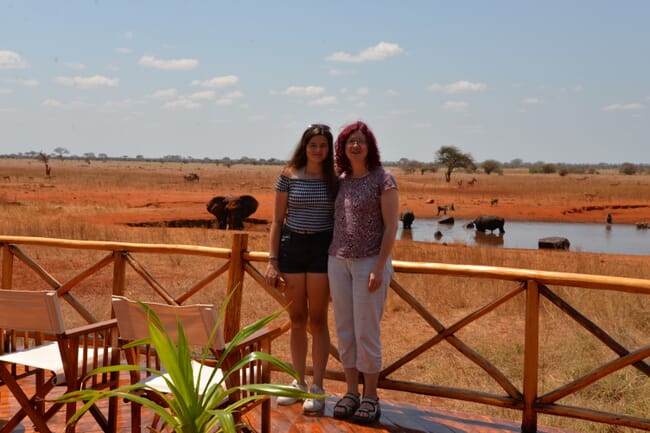
What’s the most unusual experience you’ve had in the aquaculture sector?
During my first lectureship, when I was in my twenties, I had to take a class electro-fishing. One mature student said he assumed it was the first time I’d done it, but I smiled and explained the basis of evidence-based science, suggesting he might wish to apply this principle when making assumptions in future. The class went well, as I had done this both as an MSc student and during my PhD. Only afterwards did I notice there had been a bull in the field we were in. I’d forgotten to check with the farmer but, thankfully, no fish or students were harmed.
Are there any individuals or organisations in aquaculture who you’ve found particularly inspirational?
I’ve been privileged to work with many inspirational individuals and organisations who have taught me so many valuable lessons over the years; far too many to mention.
In terms of organisations, the European Aquaculture Society is my second family and were very influential in my career, although I might not have realised it at the time. There were people from different parts of Europe, different cultures, very experienced people, who were so supportive and acted as my mentors. However, being on the board, then president, was tough because I had to break my maternity leave to take up my role.
In terms of individuals, Dr Lindsay Laird, a dear colleague who is no longer with us, had boundless energy and a can-do attitude. We worked closely together in my first lectureship. Despite having been recently diagnosed with breast cancer, she made time to help me learn how to juggle a heavy teaching load while simultaneously heading up an aquaculture degree programme and managing a hatchery.
What advice would you give to women looking to start a career in the sector?
It might sound a bit corny, but my advice is the same as what my mother gave to me: follow your dreams, work hard and you’ll get there. Be patient if the journey is longer than planned and more convoluted – as it was for me when I had a third child! Above all try and spend more time with good people who will support you and who you can support in return.
I look forward to the day when we don’t have to talk about women – but there still needs to be that understanding that women are likely to take some time to get back up to speed after maternity leave. There are some examples now when women are provided with a research assistant to help them when they return from leave. Flexibility and support are important to provide for anyone – regardless of their gender – who has family members who need to be looked after.
Is this something you’re hoping to help enact in your new role?
I’ve been working with Mags Crumlish, who’s in charge of our Athena Swan programme, and that’s been a great way for me to learn about some of the issues and put these on the agenda of our executive board.
Why do you think women struggle to reach executive positions in the sector?
My view is that it’s because a lot of the senior roles are occupied by men who, consciously or unconsciously, are looking for similar skills, behavioural traits and habits as themselves, while women often have different styles, different approaches and different experiences, which are not always valued in the same way. I also think that more women need to speak out about their experiences to make others more aware of the situation if they encounter it.
What’s your proudest aquaculture-related achievement to date?
Receiving the award for distinguished service from the European Aquaculture Society: I had no idea this was going to be presented to me at the opening ceremony of Aquaculture Europe 2016 in Edinburgh so it came as a wonderful surprise. I was speechless and it was extra special that it was done in Scotland, as I’d being trying to get the conference to come to the UK for 16 years.
What’s the main driver behind the EAS?
It’s about networking. About getting academics, the industry and policy makers together. When I was president I tried to bring in more interaction between these areas and this is one of the reasons there’s now a trade show at all Aquaculture Europe conferences. Interacting with the students and mentoring are also key parts. To see how the organisation has gone from strength to strength is wonderful.
What have been your first impressions of the institute and what ambitions do you have for your new role there?
I’ve been wowed by the breadth of research – whether it’s the virology, the bacteriology, the research into nutrition in Third World countries, right through to the research into sea lice. The enthusiasm of the students – there’s a real buzz about the place – and the number of visitors who want to come here from all over the world is also striking. We could spend every minute of every day showing people around.
In terms of my own ambitions I think it’s important to help redefine aquaculture and change the global perception of this sector by demonstrating how aquaculture can contribute to conservation, not just food security. And that having the right team of top scientists can transform aquatic life.
I’m also keen to diversify the portfolio of current research to work on emerging species in new habitats. There are critical questions of food security that aquaculture can address. Another major opportunity is widening the application of aquaculture in conservation efforts to improve aquatic habitats and life.
I also want the institute to work more with engineers and new technologies looking at biomaterials and transparency sensors in tanks for example. We also have to try to influence policy to increase the visibility of benefits afforded by aquaculture and ensure aquaculture is given the opportunity to grow. We still need lots of blue-sky research, too – in particular related to disease work and ensuring future species are resilient against climate change. And we need to ensure that the UK stays ahead of the curve. I see a lot of other countries investing significant amounts in aquaculture and it’s a major priority to attract the funding to ensure we have state-of-the-art facilities here. We’ll be teaming up with new partners – locally, nationally and internationally. Exciting times ahead.
What do you see as the main value of publications such as this, as well as events such as The Fish Site/EAS Women in Aquaculture seminar, which is taking place in Berlin this October?
I think they help to raise awareness of the huge variety of careers in aquaculture that can be done by both women and men. I’m looking forward to the day when promoting gender diversity in aquaculture is no longer an issue, but, in the meantime, it’s important to keep the benefits of having a diverse workforce on the radar.
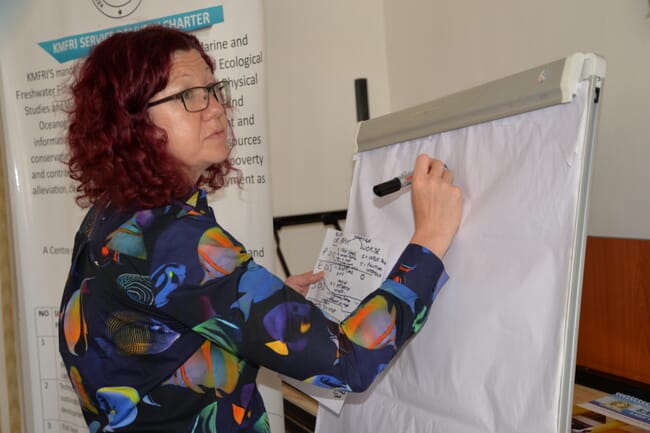
You’ve spent much of your career trying to establish which types of aquaculture can provide food and jobs without damaging the environment. Are there any particular species or production methods etc that you think we should be working harder to promote?
Yes. We should be studying integrated multi-trophic aquaculture in natural aquatic systems, because traditionally scientists focus on one species or habitat at a time rather than looking at the benefits through interactions from animals and plants in different trophic food levels – for example, fish, shellfish and seaweed.
I don’t think aquaculture scientists in general have worked closely enough with engineers and design technologists to really develop the types of innovative aquatic productive systems that are possible. In my former role as a dean of postgraduate research at Newcastle, I learned first hand how some of the most innovative and enterprising solutions arise when you have truly interdisciplinary teams of engineers working with natural and social scientists.
What would be your dream role in aquaculture and do you think it’s realistic to achieve?
For me it is simple: working with a dream team of people who care as much about improving the health of our aquatic environments using the best possible science that aquaculture can offer. I believe I have found the team but the challenge is getting the funding to keep the UK as the leader in aquaculture R&D. While I believe it’s a realistic ambition, the timescales need to be sooner than current funding allows.
Professor Stead will be taking part in the special Women in Aquaculture seminar that's being organised by The Fish Site and EAS and is taking place at AE2019 in Berlin on 9 October.


